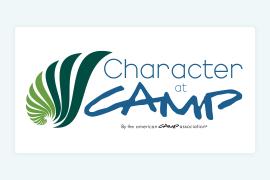Guest post contributed by Karen Parson
It may be the middle of winter, but it’s not too early to begin thinking about which summer camp is best for you. There are a lot of camps out there and each has different goals and activities. Choosing which summer camp is right for you is more than a matter of selecting the summer camp closest to you.
Here are ten steps to follow to make sure that you find the right summer camp:
- Decide what your expectations are. You likely have some expectations for what you expect the camp experience to be like. Does the camp focus on outdoor skills? Making friends? Having fun? Consider if you’d like to work at a camp with a certain philosophy or world view. If you are a past summer camper yourself, think about the aspects of camp that you enjoyed and what you didn’t like.
- Talk with your family and friends about what they want. While your ideas are generally the most accurate, it’s good to talk with others as well. This will help you focus on what’s most important, and additional concerns or ideas might surface as you talk with other people.
- Make a list of potential camps. Once you have a good idea about where you want to work, go out and scour the Web for a list of camps and application materials. At this point, don’t rule anything out, just make a list of all the possibilities. For example just because you live on the West Coast of the United States doesn’t mean you can’t consider a summer camp in Texas or a summer camp in New York. After you make a list, try and categorize the camps into areas of interest. For example, outdoor camps or camps that focus on art, science, or music. If you have a particular interest or a certain skill, place those types of camps at the top of your list in those categories.
- Compare the activities that each camp offers. Will there be crafts? Horseback riding? Interpretive dance? What steps does the camp take to ensure that you and the kids you counsel will be able to participate in activities? Look at what each camp offers carefully.
- Research other camp features. Activities are not the only thing that can make or break a camp experience, however. You should also look at each camp’s size, location, ratio of counselors to campers, safety features, average age of campers and counselors, and accommodations. At this point, you can start narrowing down your options to the camps that suit you best.
- Ask for reviews from past counselors. If you know other counselors who attended the camp recently, that’s great. Ask a lot of questions, and make sure that they tell you about what they liked and didn’t like about the camp. If you don’t know anyone who personally attended the camp, ask for references directly from the camp itself and read online reviews to get a full picture about what you can expect.
- Take a tour of the camp. If possible, arrange to take a tour of the camp before you commit to work for them. The winter months are great for planning trips like this.
- Look at wages. Wages do, of course, matter, but keep in mind that wage is not always an indication of which camp is best. Consider the price in context of what the camp actually offers — activities, number of days, meals, benefits, and working atmosphere.
- Make a decision with loved ones about which camp is best. With all of these considerations in mind, and in consultation with your friends, mentors, and family, decide which camp is right for you.
- Apply to the camps you like most. Many camps have open application periods for most of the year. Now that you have decided on the perfect camp, don’t lose your opportunity by waiting too long to apply. Go ahead and sign up through the camp’s Web site or by calling them directly.
If you follow all these steps, you can feel good knowing that you have carefully weighed all the options and that your decision is a good one when applying to work as a summer camp counselor.
Karen Parson has worked at many Texas summer camps in her career and currently works with Camp Cho-Yeh in Livingston, Texas.




